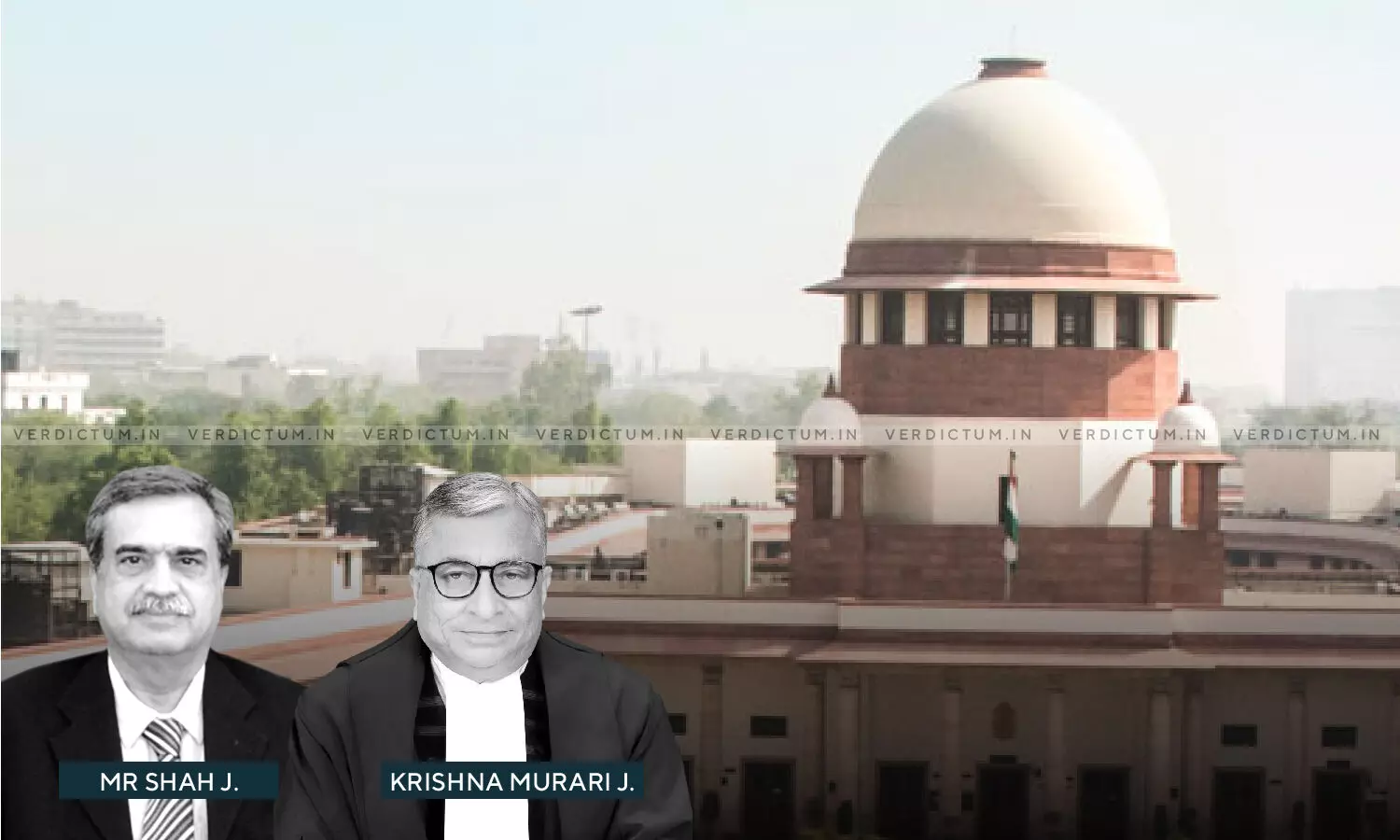
Specific Averments Of Fraud Must Be Made In Plaint- SC While Condemning 'Clever Drafting'
 |
|A Supreme Court Bench of Justice MR Shah and Justice Krishna Murari heard an appeal against a judgment passed by the Madras High Court. The Supreme Court set aside the judgment, holding that "by such vague allegations with respect to the date of knowledge, the plaintiffs cannot be permitted to challenge the documents after a period of 10 years. By such a clever drafting and using the word "fraud", the plaintiffs have tried to bring the suits within the period of limitation invoking Section 17 of the limitation Act. The plaintiffs cannot be permitted to bring the suits within the period of limitation by clever drafting, which otherwise is barred by limitation."
Senior Advocate Kapil Sibal appeared for the Appellant, and Senior Advocate Sushil Kumar Jain appeared for the Respondents.
In this case, the Respondents had filed suits before the Trial Court for the cancellation of a sale deed that was executed by them in favor of the Appellant. The Respondents also prayed for the declaration of the Respondents as absolute owners of the suit property, and consequently, the restraint of the Appellant from alienating the suit property in any manner. The suits were filed after a period of 10 years from the date of execution of the registered sale deeds.
Having been served with the summons, the Appellant filed applications before the Trial Court to reject the plaints in the exercise of powers under Order VII Rule 11(d) of the CPC, mainly on the ground that the respective suits were clearly barred by the law of limitation.
The Respondents resisted the applications by submitting that the Sale Deeds – for which the relief of cancellation was sought – had been obtained by fraudulent misrepresentation.
The Trial Court dismissed the applications by observing that the issue of limitation is a mixed question of law and facts and therefore, the respective prayers are not required to be rejected at this stage in the exercise of powers under Order VII Rule 11(d) of the CPC.
Aggrieved, the Appellant filed revision petitions before the High Court. The High Court dismissed the petitions, following which the Appellant approached the Supreme Court.
Considering the issue of whether the plaints filed were required to be rejected on the ground of limitation, the Supreme Court referred to the date on which the cause of action for the suit arose, and found that most of the cause of actions alleged were much prior to the execution of the registered sale deeds. In a similar context, the Court also held that "Nothing has been mentioned on which date and how the plaintiffs had the knowledge that the document was obtained by fraud and/or misrepresentation. It is averred that the alleged fraudulent sale came to the knowledge of the plaintiffs only when the plaintiffs visited the suit property. Nothing has been mentioned when the plaintiffs visited the suit property. It is not understandable how on visiting the suit property, the plaintiffs could have known the contents of the sale deed and/or the knowledge about the alleged fraudulent sale."
Further, the Court noted that the averments and allegations in the plaint with respect to fraud were not supported by any further averments and allegations of how the fraud has been committed.
The Court observed that the Respondents had attempted to bring the suits within the limitation by merely using the word "fraud", as opposed to making specific averments. To that end, the Court held that the Respondents could not be allowed to bring the suits within the period of limitation by "clever drafting", which were otherwise barred by limitation.
Therefore, the Supreme Court held that both the lower Courts had materially erred in not rejecting the plaints in the exercise of powers under Order VII Rule 11(d) of CPC.
The Supreme Court set aside the judgment and order passed by the High Court and Trial Court, and allowed the applications filed by the Appellant, thereby rejecting the plaints on the ground that they were barred by limitation.
Cause Title - C.S. Ramaswamy v. V.K. Senthil & Ors.
Click here to read/download the Judgment